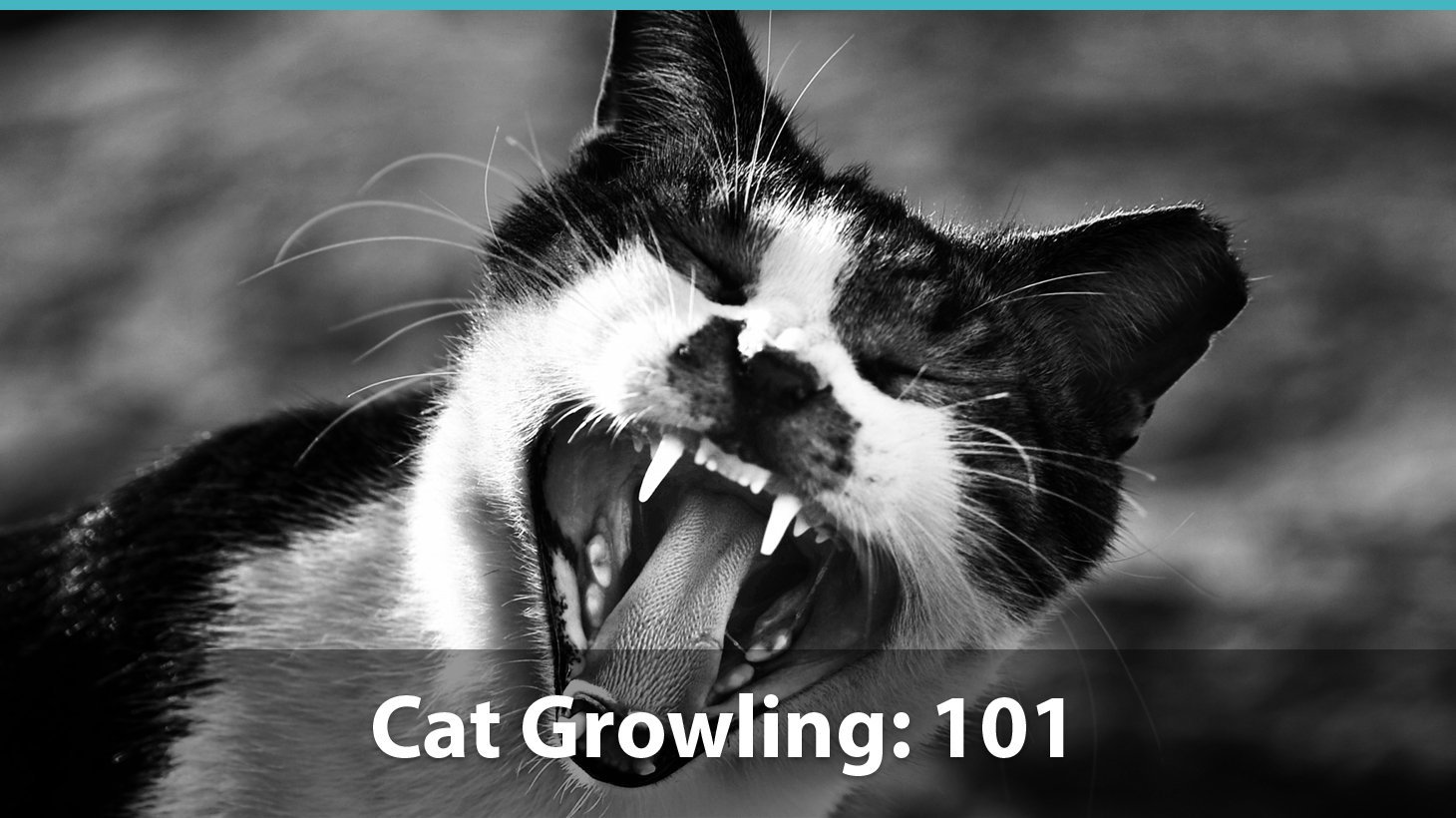Felines are curious, puzzling and often quite misunderstood creatures. Strangely enough, sometimes it seems as though they’re coming from a completely different planet than ours.
It’s not only that we don’t speak fluent meow – it’s just the way cats are.
If you’re one of those pet parents who have a hard time understanding their kitty – don’t worry! We’ve all been there!
As a cat owner, I know how frustrating it can be. You’re doing your best, and you still can’t understand what you’re doing wrong.
Your cat’s refusing to play with you or snuggle or even let you touch it without growling at you. Oh, yes, that growling can be pretty alarming and even scary!
After all, cats are excellent predators and can leave some pretty nasty bite marks which could and will scar you for weeks!
What is growling and what’s the deal with your cat?
Growling is a raspy, guttural sound that kitties produce on several occasions.
Sometimes it may sound like a grunt, whereas other times it may remind you a bit of yowling or. It all depends on the cat’s mood, vocal cords, and the reason behind its actions.
What if the growling is preceded or followed by hissing
In cases like these, cats are giving the so-called double warning. This type of vocalization might seem unnatural if the kitty is growling at an inanimate object or a person for no apparent reason.
But if this is the case, you can be doubly sure something is agitating your cat. And it’s up to you to figure out what that something is.
Go check out my article on cat hissing if you want to find out more about why your pet might be producing the hissing sounds.
Why is your cat growling?
Cats don’t growl because they’re grumpy in general or because they’re trying to punish their owners. Here are the most common causes of growling.
1. Cats Growl As A Warning
If you take a closer look at your pet’s body language, you’ll see some warning signs. Ear movement, bristled fur, tail position, etc., are just some of the treacherous signs.
Growling as a warning is usually accompanied by a specific body position and bristled fur/ tail. The eyes are focused and the cat’s entire body is alert.
Kitties give warnings like these when they don’t want to be approached any further.
Sometimes they’re protecting their territory from some harmless animal on the other side of the window. At other times, they’re trying to warn off their owners because they want their personal space.
2. Cats Growl Out Of Fear
Not all warnings are derived from your cat’s aggression or territorial behavior. Cats can get scared by almost anything. The growling can be derived simply from fear.
As a way of making themselves bigger and more menacing, kitties bristle up their fur and produce wild sounds.
If your furball thinks someone or something poses any type of threat, it could be growling out of fear. And if that’s the case, you can try different techniques to help.
Check out my article on how to calm down a cat for strategies.
3. Cats Growl When Angered, Annoyed, or Stressed
The worst type of cat is the annoyed one. Vengeful, agitated, and utterly unpredictable, he can do some serious damage to you and your home.
Cats growl at people, animals, or objects when irritated. You can even think of it as cursing.
And if the cat keeps growling, you’ll see that his expression changes too – from mildly annoyed to full-time-bare-teeth raging. In cases like these, your best option is to back away.
4. Cats Growl To Signal Dominance
When your pet is upset by something or someone, they might want to show dominance. That’s caused mainly by the inborn territorial sense of felines.
If this is a persisting issue with your cat, you might want to opt for an animal behaviorist or trainer’s services.
5. Cats Growl When In Physical pain
Yes, cats can indeed growl out of pain. Similar to the way they would meow or cry out of pain, a physical injury might make them growl.
Injuries or diseases like arthritis and urinary tract infection can lead to growling. This type of growling typically occurs when someone is trying to approach or touch your kitty.
However, you may also hear a growling or howling-like sound if your pet’s symptoms are worsening.
6. Cats Growl When Protecting Their Possessions
Cat’s are possessive, and your cat may growl at you or another cat or another animal to protect what is rightfully theirs.
Female cats are protective of their young. If they believe their kittens are being threatened, they will growl, hiss, or spit to ward off the threat.
Your cat may also show this behavior in protecting food, a toy, or any possession that your cat believes is theirs and theirs alone.
Regardless of why your cat is growling at you or someone/ something else, don’t ever punish it!
Your cat’s behavior is telling you something. Try to pinpoint the reason behind the sounds. Shouting or punishing your pet in any other way will only stress it out or anger it even further.
This will deepen the cat’s negative emotions and might even ruin the pet-owner bond.

